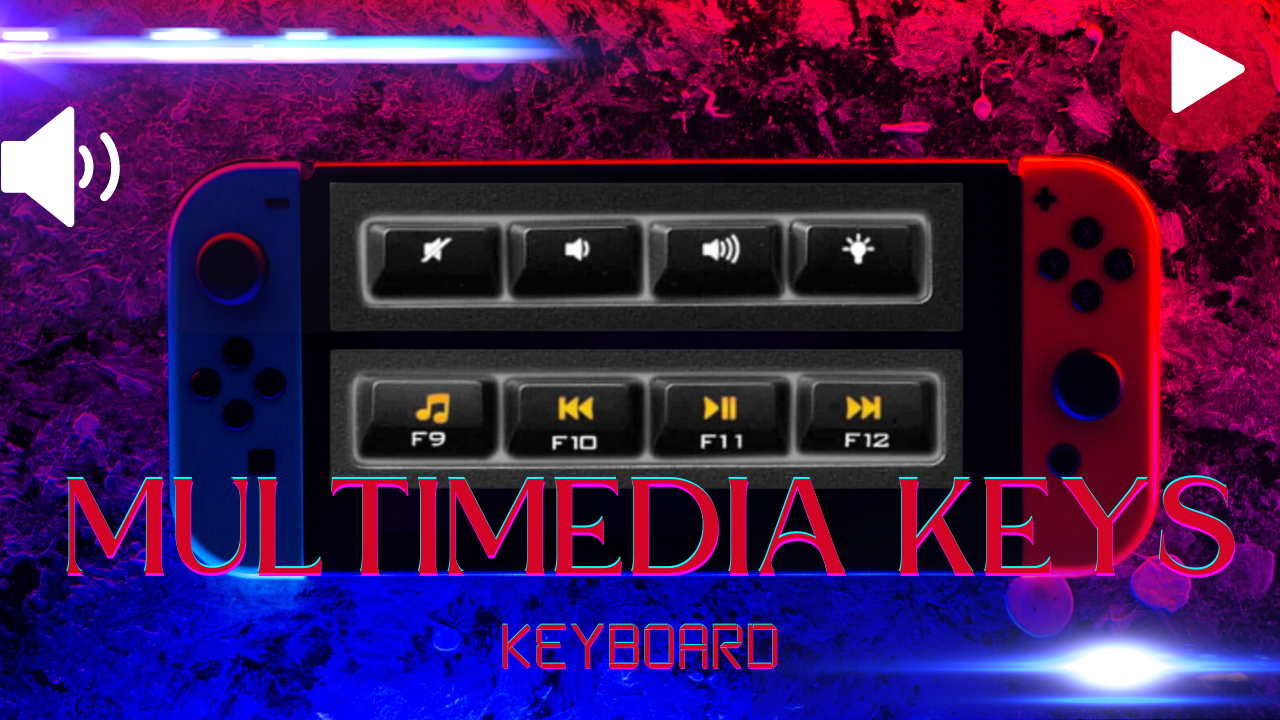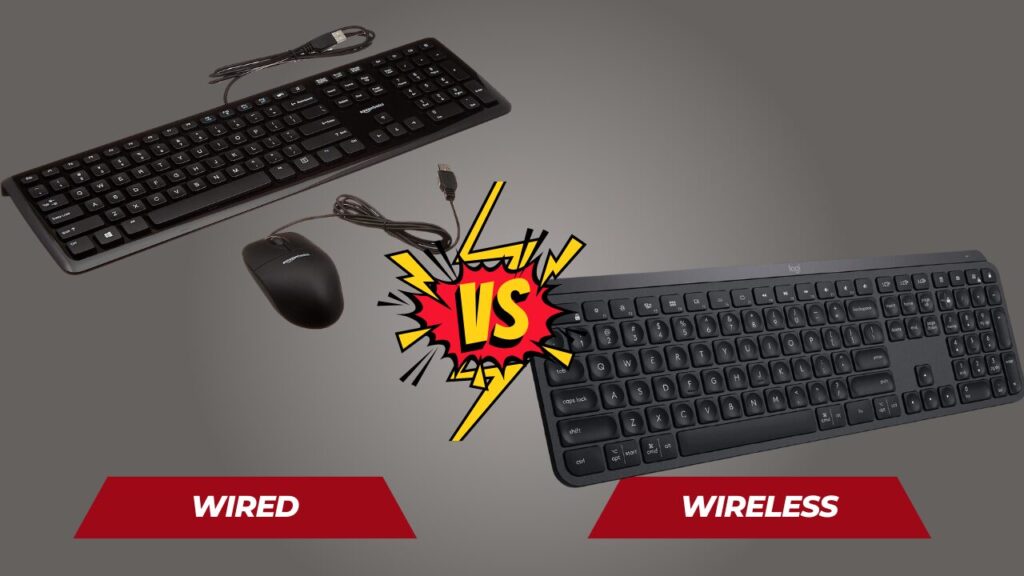
Welcome to the great keyboard debate: Wired vs Wireless keyboard!
In this digital age, where our fingertips dance across keys to communicate, create, and conquer, the choice of keyboard becomes more than just a simple decision. It’s a gateway to productivity, comfort, and personal preference.
Both types have their advantages and disadvantages, so it’s important to understand the differences between them before making a decision. In this article, we will explore the pros and cons of both wired and wireless keyboards, discuss their suitability for gaming and work, highlight some of the best options on the market, and provide factors to consider when choosing between the two.
Wired Keyboard vs Wireless Keyboard: Performance
When it comes to performance, wired keyboards have a clear advantage. Wired keyboards are known for their reliability and consistent performance. They do not experience input lag, which can be crucial for competitive gaming or time-sensitive productivity work.
On the other hand, wireless keyboards may have slight input lag due to the wireless transmission of signals. While modern wireless keyboards have significantly reduced input lag, they can still be noticeable in certain situations.
Suppose you require a keyboard that consistently performs at its best, especially for gaming or demanding workloads. In that case, a wired keyboard is the recommended choice.
Wired Keyboard vs Wireless Keyboard: Design
Design is another essential aspect when choosing between a wired and wireless keyboard. Wireless keyboards often feature better materials and a more premium build quality than wired ones. They are also more portable and convenient to use, as they do not have any cables that can get tangled or take up precious desk space. Additionally, wireless keyboards allow for more flexibility in positioning, as they can be used from a distance without the limitation of cable length.
On the other hand, wired keyboards come in various designs, including wired mini keyboards for a more compact setup. Mechanical keyboard options span a wide range, from minimalist models to backlit gaming keyboards with programmable keys. Ultimately, the design choice depends on your personal preferences and specific needs.
Wired vs Wireless Keyboard: Price
When choosing between a wireless and wired keyboard, price is a crucial factor to consider. Generally, Best wireless keyboards tend to be priced higher than their wired counterparts. Wireless keyboards require additional technology when not connected to a charger.
In contrast, Wired keyboards are always connected to the PC setup as a power source. As a result, wired keyboards are usually more budget-friendly, making them a better choice for those on a tight budget. However, if price is not a concern for you, there are other factors to consider to make the right decision.
Which one is better?
- Wired: If you prioritize responsiveness and durability and don’t mind the cable.
- Wireless: If you value portability, a clutter-free workspace, and the convenience of typing from a distance.
Best Wired Keyboards for different needs
- Das Keyboard 4 Professional: The high-quality mechanical keys of Das Keyboard 4 Professional offer a satisfying typing experience, making it a durable choice. It features a stable build, multimedia controls, and a USB pass-through.
- Corsair K95 RGB Platinum: This customizable gaming keyboard features Cherry MX switches, programmable keys, and vibrant RGB lighting for an immersive gaming experience.
- Razer BlackWidow Elite: This popular gaming keyboard offers Razer’s mechanical switches, comfortable wrist rest, and customizable RGB lighting for performance and comfort.
Pros and Cons of Wired Keyboards
| Pros |
|---|
|
| Cons |
|---|
|
Best Wireless Keyboards for different needs
1. Logitech MX Keys:
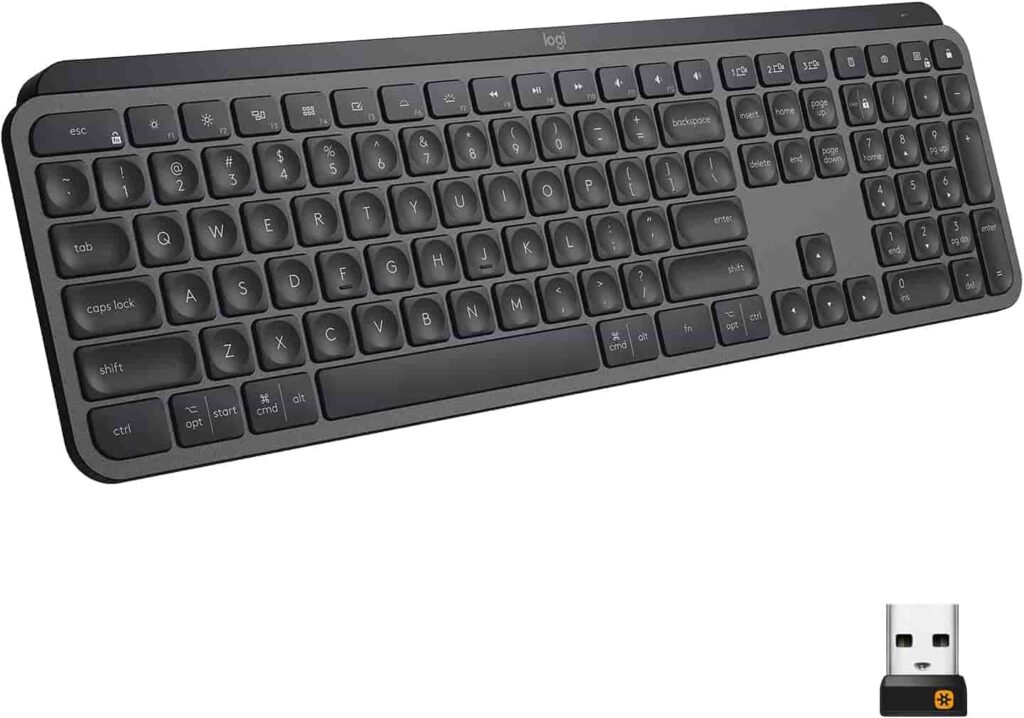
Logitech MX Keys is perfect for professionals who spend long hours typing, thanks to its sleek design and comfortable typing experience. It offers a backlit keyboard, bright illumination, wireless connection, and multi-device connectivity.
2. Apple Magic Keyboard:
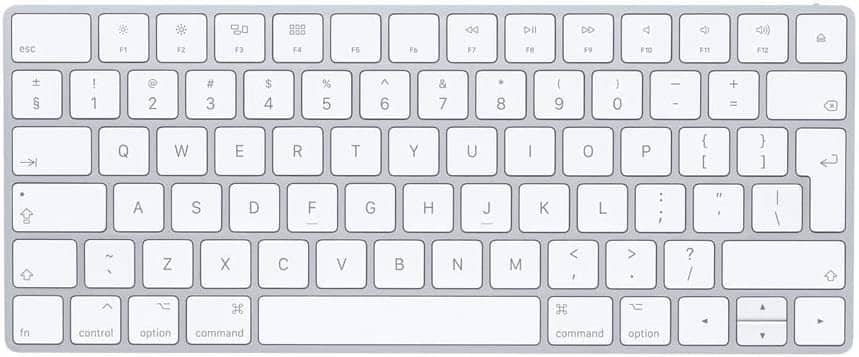
Designed specifically for Mac users, the Apple Magic Keyboard combines style and functionality. It features a compact design, a scissor mechanism for precise typing, and a rechargeable battery.
3. Microsoft Surface Keyboard:
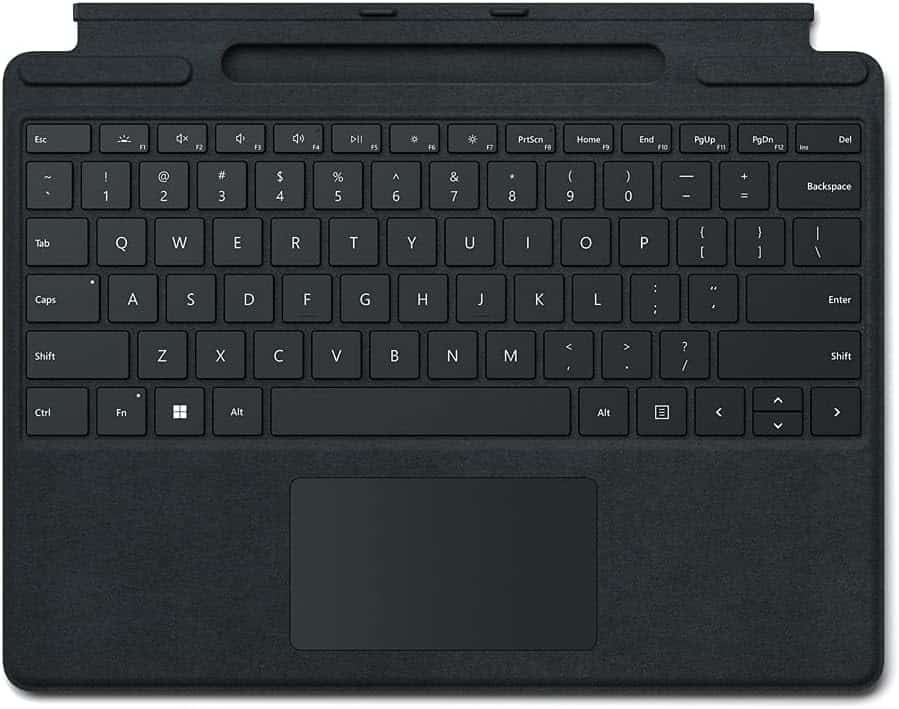
If you prioritize ergonomics, consider the Microsoft Sculpt Ergonomic Keyboard, which promotes healthy hand positions. It offers a minimalist design, a comfortable typing experience, and Bluetooth connectivity.
Pros and Cons of Wireless Keyboards
| Pros |
|---|
|
| Cons |
|---|
|
Bluetooth Keyboards vs USB Keyboards
There are two primary connectivity options for wireless keyboards: Bluetooth and USB.
Bluetooth keyboards connect to your computer or device via Bluetooth technology, while USB keyboards use a USB receiver or cable. Both options have their advantages.
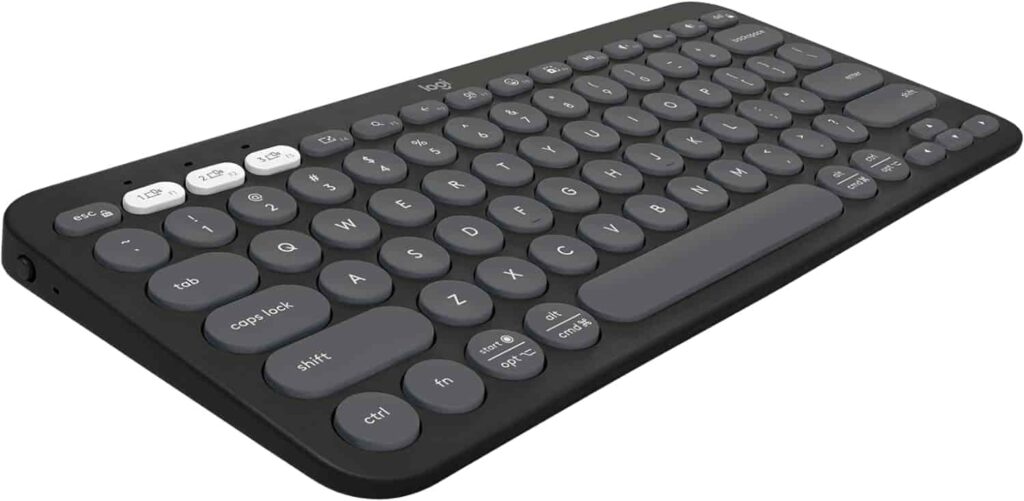
Bluetooth keyboards provide flexibility and can connect to multiple devices simultaneously. They can work with operating systems like Windows, Mac, and mobile devices. They can work with other operating systems like Windows, Mac, and mobile devices. However, Bluetooth keyboards may have a slightly higher latency than USB ones.
On the other hand, USB keyboards offer a more stable and reliable connection. They are plug-and-play, requiring no additional setup or pairing. USB keyboards also tend to have lower latency, making them suitable for gaming and other activities that require quick response times.
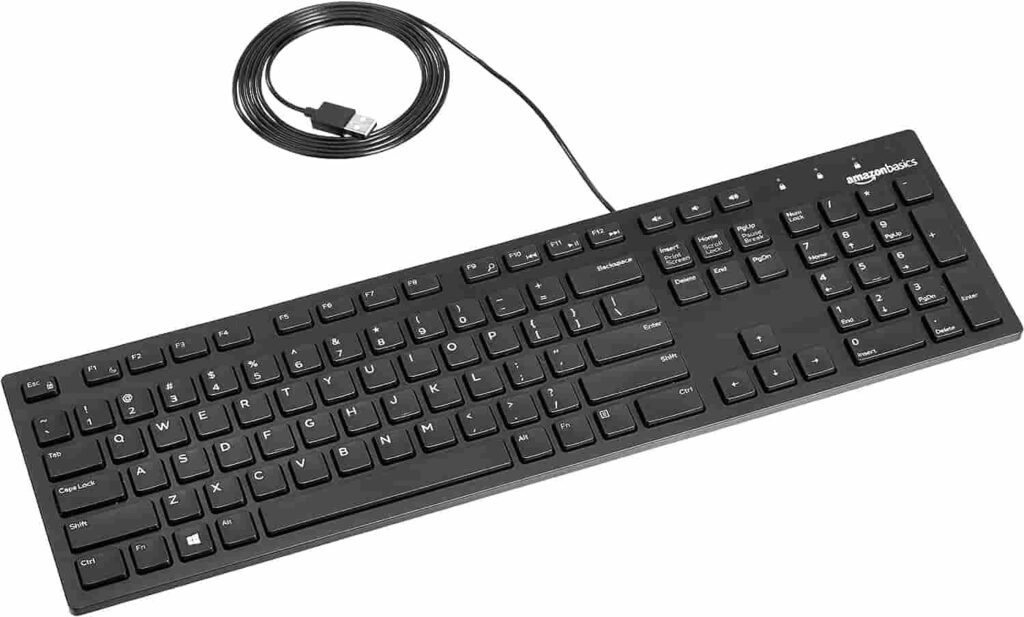
Choosing Bluetooth and USB keyboards ultimately depends on your specific needs and preferences. Consider device compatibility, convenience, and latency requirements when deciding.
Wired vs. Wireless Keyboards: A Side-by-Side Comparison
| Feature | Wired Keyboard | Wireless Keyboard | Bluetooth Keyboard | USB Keyboard |
|---|---|---|---|---|
| Connection | Physical cable (USB or PS/2) | Wireless technology (Bluetooth or USB receiver) | Bluetooth | USB receiver |
| Performance | Similar to wired, it depends on the Bluetooth version | Consistent, low-latency | Consistent, low-latency | Consistent, low-latency |
| Mobility | Restricted by cable length | Untethered, free-movement | Similar to wired, depends on the Bluetooth version | Restricted by cable length |
| Design | More variety in design, including compact options | Often premium materials and sleek design | Focuses on portability and minimalist look | Traditional desktop keyboard design |
| Price | Generally more affordable | Typically pricier than wired options | Varies depending on brand and features | Similar to wired keyboards |
| Pros | Reliable, no input lag, no battery hassles, can be cheaper | Freedom of movement, clean desk setup, convenient for laptops | Convenient multi-device pairing, no cable clutter | Reliable, plug-and-play, low latency |
| Cons | Limited mobility, cable clutter, potential cable damage | Untethered, free-movement | Slightly higher latency, potential security concerns | Limited mobility, cable clutter |
| Best for | Gamers, fast typists, budget-conscious users | Users who value portability and convenience, laptop users | Multi-device users, minimalist setups | Desktop users who prioritize performance and affordability |
Wired vs. Wireless Mice: A Comparison
While we have focused on keyboards thus far, the comparison between wired and wireless mice is worth mentioning. Many of the pros and cons discussed for keyboards also apply to mice.
Wired mice offer a direct and reliable connection, ensuring smooth and precise cursor movement. They don’t require batteries and are generally more affordable than wireless mice. However, the cables can sometimes restrict movement and create clutter.
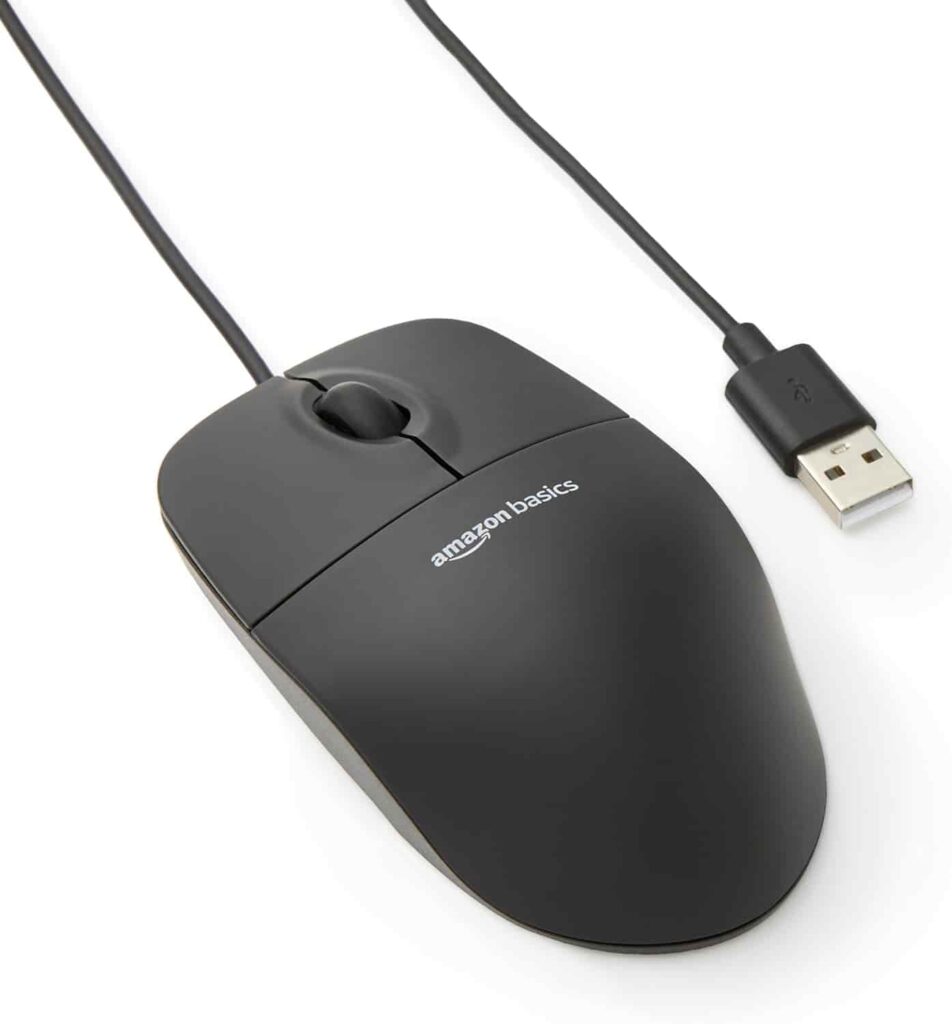
On the other hand, Wireless mice provide freedom of movement and eliminate cable-related concerns. They are handy for presentations, gaming, and controlling your computer from a distance. Wireless mice are convenient but need batteries or charging to function and may sometimes face connectivity problems.
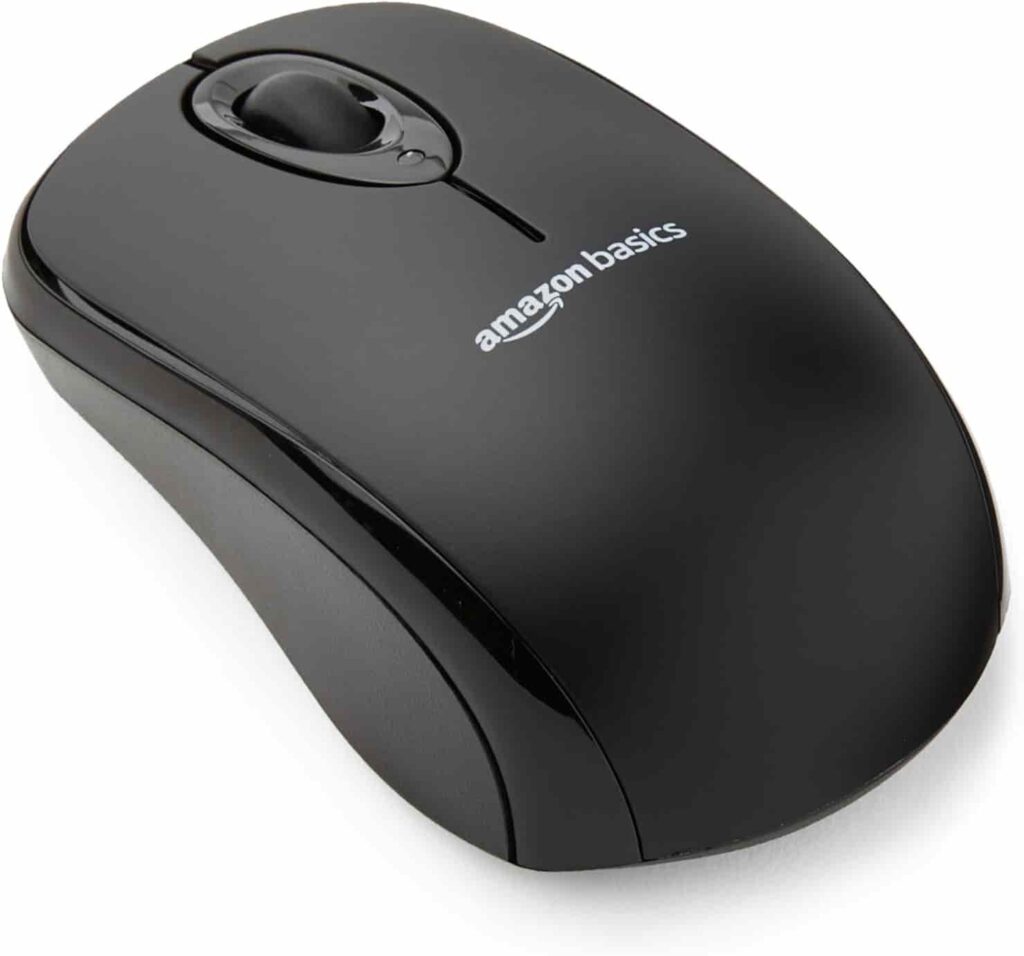
Like keyboards, factors such as reliability, portability, and workspace setup should guide your decision when choosing between wired and wireless mice.
Where to Buy Wired and Wireless Keyboards?
When it comes to purchasing keyboards, there are several options available. Here are some popular places to buy both wired and wireless keyboards:
- Amazon: One of the biggest online retailers, Amazon provides a wide range of branded keyboards. You can find wired and wireless options, read customer reviews, and compare prices.
- Best Buy: Best Buy is a popular electronics retailer that stocks a variety of keyboards, including wired and wireless models. Many stores have displays where you can try out various keyboards before buying them.
- Newegg: Newegg is an e-commerce website that sells computer hardware and electronics products. They have a vast selection of keyboards, including gaming keyboards, ergonomic keyboards, and mechanical keyboards.
Factors to Consider When Choosing Between Wired and Wireless Keyboards
Several factors should influence your decision between a wired and wireless keyboard. Firstly, consider your usage. Suppose you primarily use your keyboard at a fixed workstation and value reliability and performance. In that case, a wired keyboard may be the better choice. On the other hand, if you value portability and freedom of movement, a wireless keyboard would be more suitable.
Another consideration is your workspace setup. If you have limited desk space or prefer a clean and clutter-free environment, a wireless keyboard can help achieve that. However, suppose you have a dedicated workspace and are okay with cables. In that case, a wired keyboard may be a more cost-effective option.
Finally, the budget has an impact on the decision-making process. Wired keyboards are generally more affordable than wireless ones. A wired keyboard can provide excellent functionality without breaking the bank if budget is a concern. Wireless keyboards, although pricier, offer the convenience and flexibility that some users find invaluable.
Conclusion:
In the wired versus wireless keyboard debate, there is no definitive answer. It ultimately depends on your specific needs, like preferences. Wired keyboards offer reliability and performance, while wireless keyboards provide convenience and portability. When deciding, consider factors such as usage, battery life, wired connection, workspace setup, and budget.
Select a keyboard that matches your requirements and improves your typing experience. Whether you opt for a wired or wireless keyboard, many options are available from reputable brands. Take the time to research and compare different models to find the perfect keyboard for you.
So, whether you’re a professional needing a reliable keyboard or a gamer seeking optimal performance, make an informed decision and choose the keyboard that best suits your needs. Happy typing!
Are wired keyboards better than wireless?
Wired keyboards are not necessarily better than wireless keyboards. It’s hard to give a definitive answer as it varies depending on your requirements and personal preferences. Wired keyboards offer consistent performance without input lag, making them ideal for tasks requiring quick responses. Wireless keyboards offer greater mobility and eliminate cable clutter, which can be beneficial in some situations.
What is the difference between wireless and wired keyboards?
The main difference between wireless and wired keyboards is how they connect to the computer. Wired keyboards are physically attached to the computer via a cable. In contrast, wireless keyboards use wireless technology such as Bluetooth or a USB receiver to transmit signals to the computer. This difference in connectivity affects factors such as input lag, portability, and convenience.
Wired or wireless keyboard for gaming: which side are you on, and why?
Wired keyboards are generally better for gaming due to their reliable and consistent performance without input lag. They provide a direct connection to the computer, ensuring quick response times and accurate input. However, some wireless keyboards are specifically designed for gaming and offer low latency and high responsiveness, making them suitable for casual gaming or non-competitive gameplay.
Are wireless keyboards good for typing?
Absolutely! Modern wireless keyboards offer fantastic typing experiences thanks to improved technology and quieter key mechanisms. While some older models might have experienced slight input lag, many advanced wireless keyboards now boast near-zero latency, making them indistinguishable from their wired counterparts regarding typing performance.
What’s better wired or wireless mouse?
The answer depends on your priorities! Wired mice offer slightly faster response times and consistent performance thanks to the direct connection, making them ideal for competitive gaming or fast-paced work. However, wireless mice provide unmatched freedom of movement and eliminate cable clutter, perfect for presentations, working on the go, or maintaining a sleek desk setup.
Is a wireless keyboard good for a laptop?
Yes, a wireless keyboard can be an excellent choice for your laptop! It enhances portability, eliminates cable tangles in your bag, and offers more flexibility in positioning the keyboard for comfortable typing anywhere. Moreover, many wireless keyboards connect to multiple devices, allowing you to seamlessly switch between your laptop and other devices like tablets or smartphones.
What are two advantages of using a wireless keyboard as opposed to a wired keyboard?
Two advantages of using a wireless keyboard over a wired keyboard:
- Freedom of movement: Ditch the cable tether and enjoy unchained typing! Move your keyboard around freely for optimal comfort, work from the couch, or even give presentations without being restricted by wires.
- Clutter-free workspace: Say goodbye to cable spaghetti! A wireless keyboard helps maintain a clean and organized desk aesthetic, minimizing clutter and maximizing your workspace potential.
Is wireless or wired better for gaming?
Wired mice and keyboards still hold the edge for competitive gamers prioritizing absolute zero latency. However, modern high-performance wireless options offer near-identical response times and features for most gamers, making them a great choice for their freedom and convenience. Ultimately, the choice concerns your preference for performance vs. wireless flexibility.


